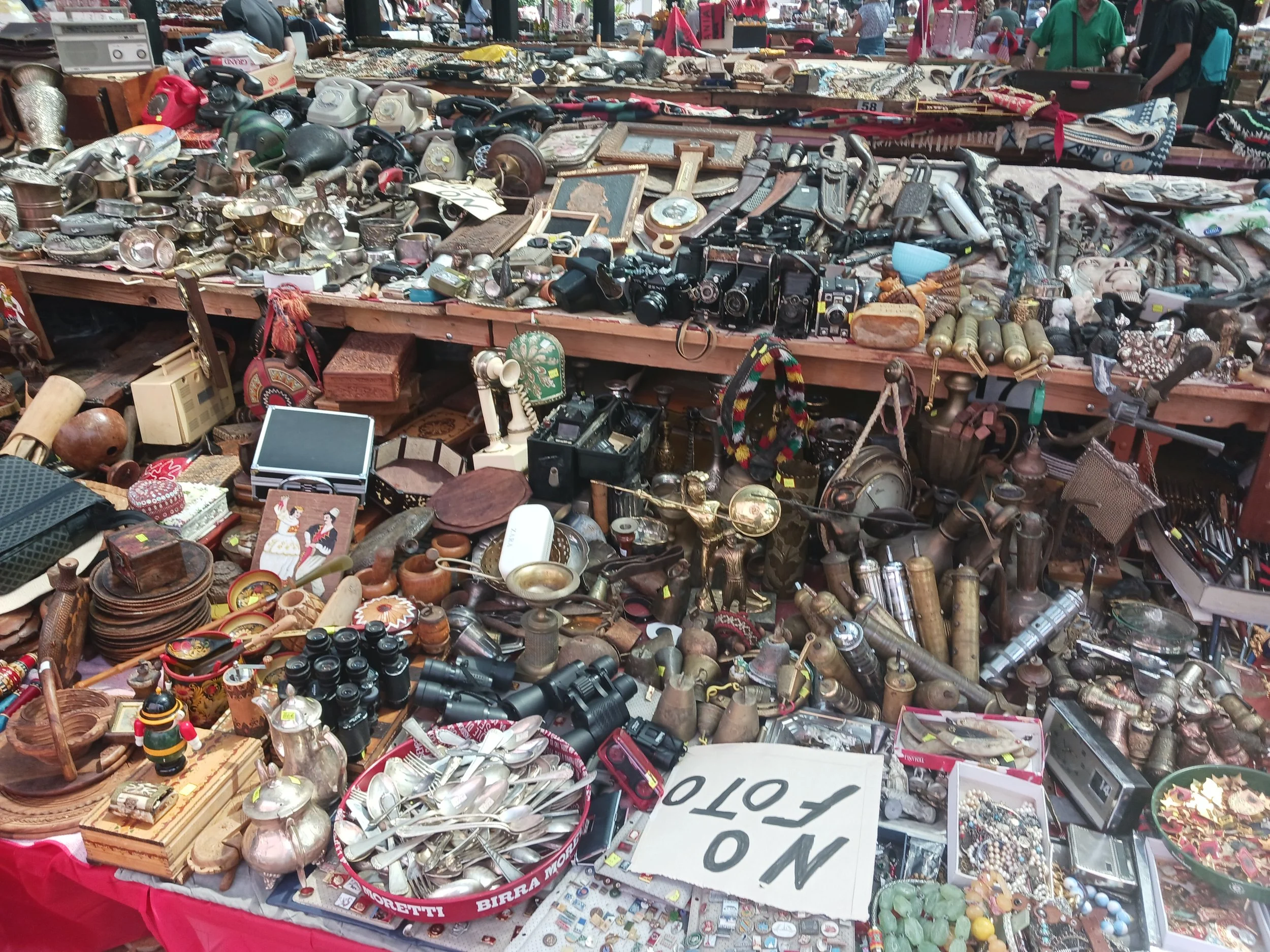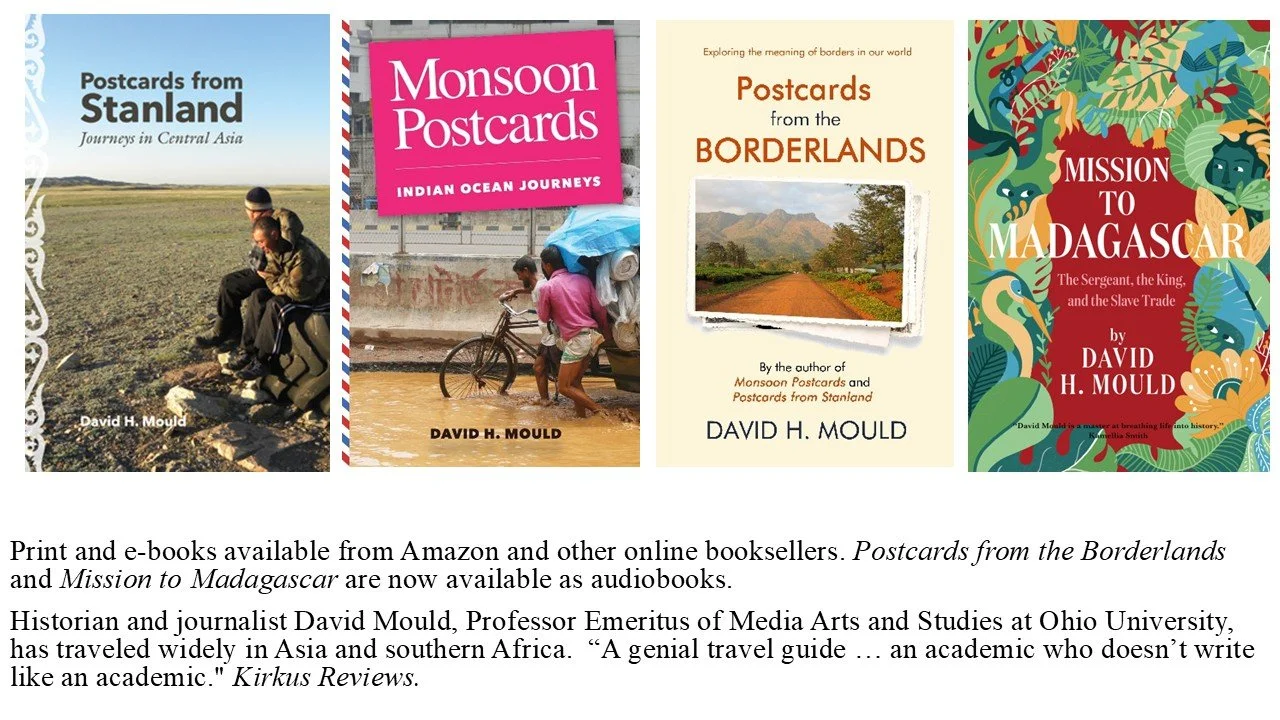“Um, can you help me? I’m looking for an antique Albanian ___.” If it’s old and Albanian, you can probably find it on this stall in Tirana’s central bazaar, although you may need to spend some time looking through the dense assortment of bric-a-brac.
There is a system here. All the communist-era Albanian army caps are in one section (if we can call it a section), along with a few other items of headgear. I suspect that the German army helmet did not originally come with the swastika, that it was a later addition, a stick-on item. All the old cameras in one section, the phones in another. So maybe rather than rummaging, you should whip out your Albanian phrase book and ask the stall owner. And then he can do the sales pitch, spinning an unverifiable yarn about the provenance of the item.
“Ah, you like the dagger in the scabbard? Bought it in Shkoder from the grandson of a partisan who fought in the mountains in 1912 against the invading Serbian army. He was a great hero of our independence.”
“What was his name?”
“I don’t remember it now, but he was a great hero.”
“What about the phones?”
“These were used by the Sigurimi, the secret police, in the communist era. Have you been to the House of Leaves, the Museum of Secret Surveillance? You’ll see phones like these there.”
“Yes, I have, but they just look like ordinary rotary dial phones. We had them in the United States too, and everyone used them. Even the FBI and CIA . How do you know these came from the Sigurimi?”
At this point the stall owner would probably say something about the thriving black market in the early 1990s after the fall of the communist regime, and how he needed to protect his sources.
Like many flea market and yard sales items, there’s often a story to tell about how it was acquired. And if there isn’t one, you make it up. Because Albania has such an interesting history—of rebellions against invading armies, of gaining independence from the Ottomans, of the monarchy, of resistance to the Italians and Germans in World War II, of isolation from the rest of the world during the communist era—the narrative possibilities are endless.



